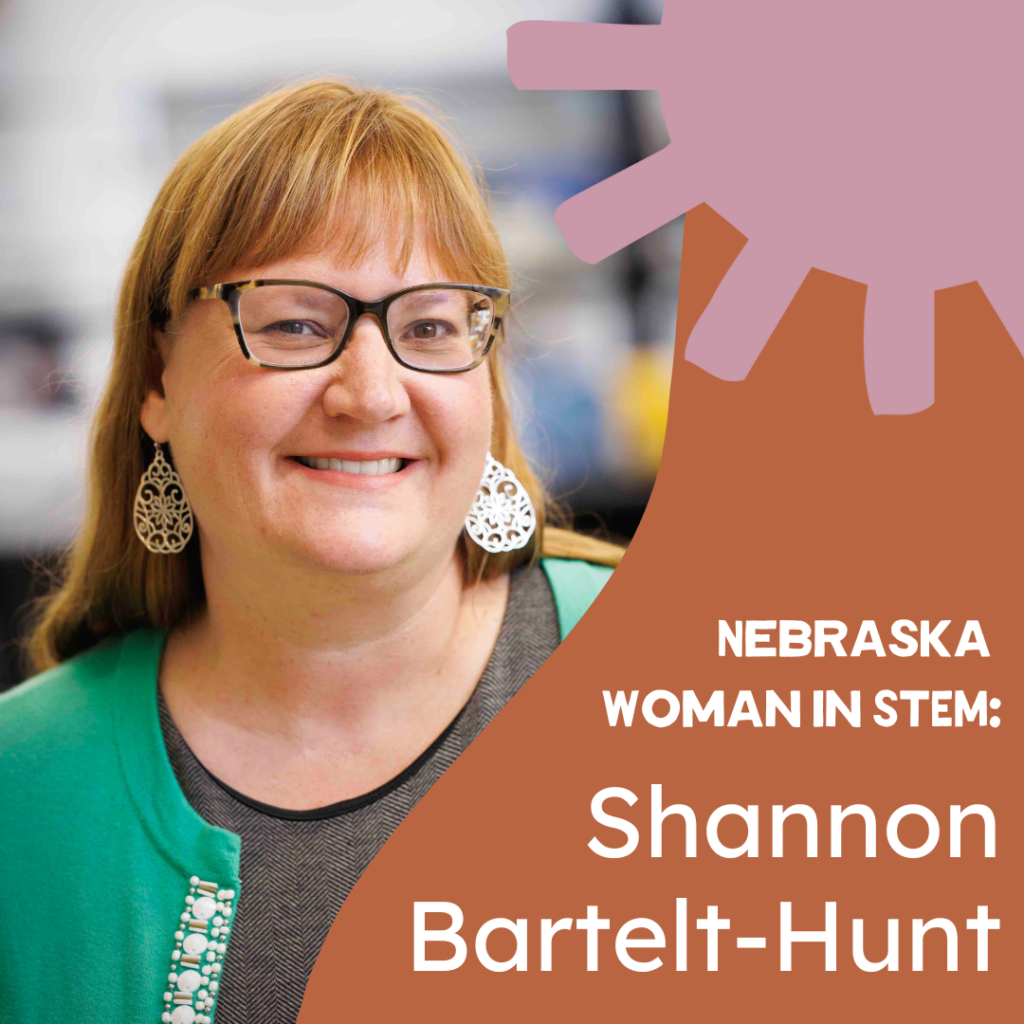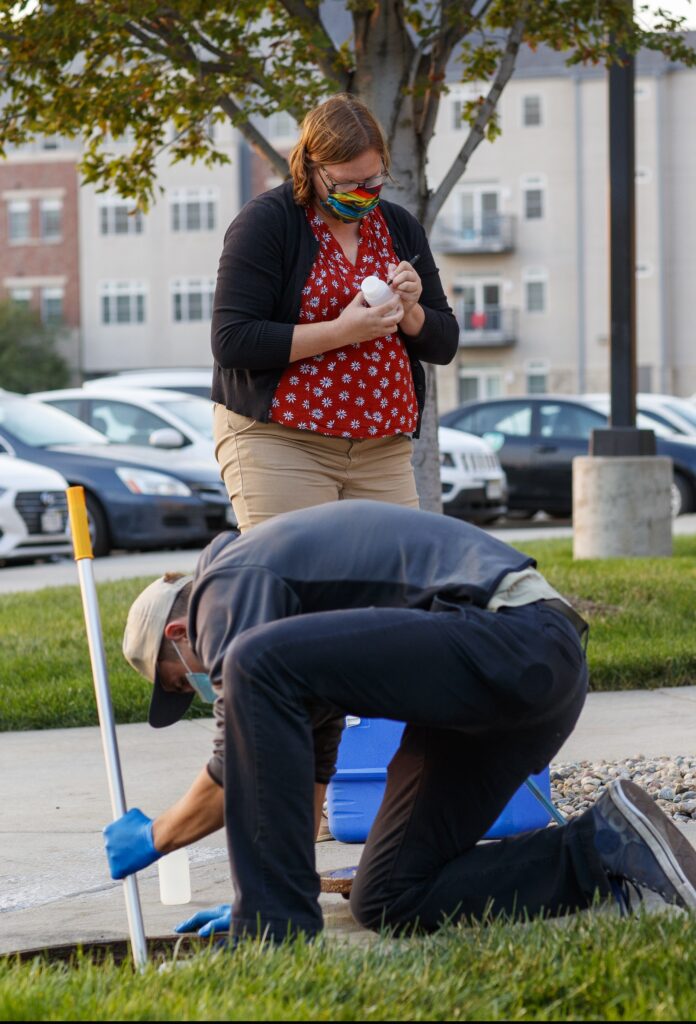Nebraska Women in STEM talked to Dr. Shannon Bartelt-Hunt about the meaningful impact of a career in civil engineering.

Dr. Shannon Bartelt-Hunt is the Chair of the Department of Civil and Environmental Engineering at the University of Nebraska – Lincoln (UNL) and the first woman to hold the position. Bartelt-Hunt loves that her career allows her to combine her passion for the environment with engineering and is seeing the appeal that it has for other women. While civil engineers are only about 20 percent women, UNL’s environmental engineering major is closer to 40-50 percent women.
“Studies show that women are attracted to helping professions, like the medical fields, where they can impact people. Women that have the inclination for math and science maybe don’t think about engineering as being a helping profession.”
“Civil and environmental engineers design all the infrastructure we use every day. We stress to our students that we’re designing roads and bridges, and we’re treating the water. Everything we do helps people stay healthy and stay safe,” said Bartelt-Hunt.
As a professor, Bartelt-Hunt teaches courses focused on environmental engineering, solid waste management, and water quality, and conducts research on the same topics. Her work focuses on contaminants that are present in our environment, how they move through the environment, and what kind of human or environmental health impacts they might have.
During the pandemic, she helped monitor the shed of the COVID-19 virus into wastewater. How much COVID-19 found in the water reflects how many people have the virus. The monitoring program has since morphed into the Nebraska Wastewater Surveillance program, which monitors for COVID-19, influenza, and RSV across the state. The program works with the Nebraska Department of Health and Human Services and the Nebraska Public Health Lab and gives that data back to public health districts so they can try to use it for decision making.
As a woman in STEM leadership, Bartelt-Hunt works to create an environment where everyone can be successful. “I’ve been fortunate to be in programs that have had really good support for women, both as a student and then here at the university. I try to continue to create those support mechanisms for our women students as well.”
She remembers how fantastic her male postdoc advisor was when she was pregnant with her first child. “I literally had to tell him I was pregnant the week I started. He was just so great. That could have just been a horrible experience.”

When she talks to young women about careers in engineering, she expresses that the career is so much more than liking math. She believes it is more important to be creative and a good communicator, because those are the skills that will get you farther. “There are a lot of people who are creative and a lot of people who want to solve problems. That’s really what engineers do.”
As for advice for other women leaders, she observes that women tend to not take opportunities unless they feel overqualified for them. “I think we have to reinforce that women should take those opportunities when they present themselves and not worry about whether they’re qualified, because they are. Go for those opportunities and then find other women peers that you can interact with and learn from.”
“Don’t count yourself out. You will do just as well as anyone else.”